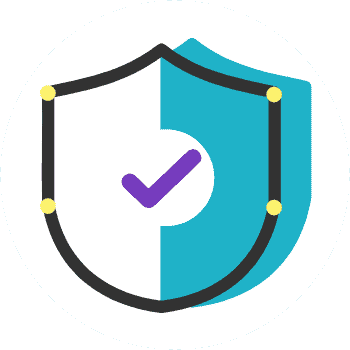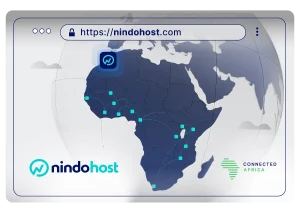Imagine waking up one beautiful morning, turning on your phone or computer screen, typing in your website's address... only to be greeted with an unpleasant message saying: this site has been hacked!
We can picture the look on your face and the state of shock and panic you'll be in. However, we genuinely don't want to see you in that situation. That's why we've decided to share this article with you, presenting various steps to take to avoid falling into this highly unpleasant scenario. So, without further ado, let's dive into how to secure a website against cyberattacks.
Why is it imperative to secure a website against cyberattacks?
This question shouldn't even be asked, but we'll ask it again anyway. We're sure there are still people who take things lightly and naively think: why would anyone want to hack me?

Cyberattacks don't just target "important" or wealthy individuals. Do you know how many cyberattacks everyday websites experience? If you have a WordPress site, install the Wordfence plugin (paid but free with limitations), let a few days pass, and "admire" the figures on the detailed and regular reports from this extension. You'll see and realize why securing a website against cyberattacks is a question that shouldn't even be asked!
6 Essential Steps to Secure a Website Against Cyberattacks
1. Choose the right host
Securing a website against cyberattacks begins with choosing a reliable hosting provider that will be there for you when your site goes offline. To do this, select a host that prioritizes client security and offers a decent minimum level of protection against attacks.
At Nindohost, we spare no effort in providing the best operating conditions for your websites in an optimal security environment.
All our hosting servers are equipped with the Imunify360 service, allowing us to provide our clients with secure and reliable web hosting through a multi-layer defense architecture. In addition to this service, all our hosting plans come with:
- Brute Force Protection
- ModSecurity Application Firewall (WAF)
- CageFS
- KernelCare
- Anti-Malware
We work with industry leaders in hosting security: CloudLinux, Imunify360, Cisco, Juniper Networks, and Atomic WAF.
Our data center offers advanced levels of redundancy not found in traditional data centers. Additionally, we perform daily backups to provide you with enhanced security.
2. Invest in efficient automatic backups
A good backup strategy, combined with a responsive host and effective technical support, will save you long periods of downtime in case of hacking. Indeed, when a site is hacked, it's not closed forever. Your host will always be able to restore and relaunch it quickly. Of course, this depends on the professionalism of the host and their investment in both hardware and human resources.
That's why we've already shared with you this article that lists 7 reasons to avoid cheap web hosting. Among the hidden points of low-cost hosting are the weakness of its security offering and responsive technical support.
Remember this general rule: the less you pay for hosting, the less important you are to your cheap host!
In this sense, Nindohost relies on the famous Acronis for managing its backups (daily, weekly, and monthly) and provides a cutting-edge backup/restoration wizard.

3. Use HTTPS and invest in a reliable SSL certificate
The letter "s" added at the end of the HTTP protocol name is not just for decoration. It's an added layer of security to protect a website from hacking and safeguard both visitors and yourself.
SSL certificates encrypt data sent between the browser and the web server, ensuring secure transactions. Visitors no longer have to worry about their sensitive data being collected by a third party.
You should also read our article: The importance of SSL certificates for your website explained in 5 reasons
4. Install security plugins
It's likely that you're currently using a CMS for your website development. The most famous of Content Management Systems is WordPress, and the community behind this content manager tirelessly develops various security extensions. We mentioned the WordFence plugin earlier, but it's not the only one. Browse the official WordPress repository online and shop for yourself. Research well before installing an extension.
Meanwhile, here's a non-exhaustive list of security plugins:
Security plugins for WordPress :
- Wordfence
- iThemes Security
- Sucuri
- Fail2Ban
Security options for Magento :
- Amasty
- Watchlog Pro
- MageFence
Security extensions for Joomla :
- JHackGuard
- jomDefender
- RSFirewall
5. Secure your admin passwords
Securing a website against hacking involves closing all access points that could be forced by hackers. They won't hesitate to test password combinations automatically to access your control panel.
It's no longer feasible to choose and enter the first "easy" password that comes to mind. The English saying is clear: Easy come, easy go!
No longer should you use the famous sequence of numbers from 0 to 9, in both directions or personal information that a well-initiated hacker could guess. Instead, opt for creative combinations of numbers, lowercase and uppercase letters, and special symbols. If you fear forgetting your passwords, adopt a unique but ingenious pattern for creating all your passwords.
If you're unable to create "strong" keywords, consider using a password generator. Combined with a good password manager, these generators are a great option.
6. Keep your website software up to date
Using a content management system (CMS) with various useful plugins and extensions has many benefits but also risks. The main cause of website infections is the presence of vulnerabilities in the extensible components of a content management system.
Since many of these tools are created as open-source software, their code is generally easily accessible to both well-intentioned developers and malicious hackers. Hackers can browse this code for security flaws that would allow them to take control of your website by exploiting the weaknesses of the platform or script.
To secure a website against hacking, always ensure your content management system, plugins, applications, and any installed scripts are up-to-date.
Please note that Nindohost has activated the free WordPress Tool kit on your cPanel hosting.
Securing a website against hacking is ultimately easy…
Indeed, there is still much to learn in terms of technical procedures to secure a website against hacking. But the few steps we've shared with you are easy to implement. Remember that your website's security is not a subject to be taken lightly. Choose your hosting provider wisely and demand the best for your money!



